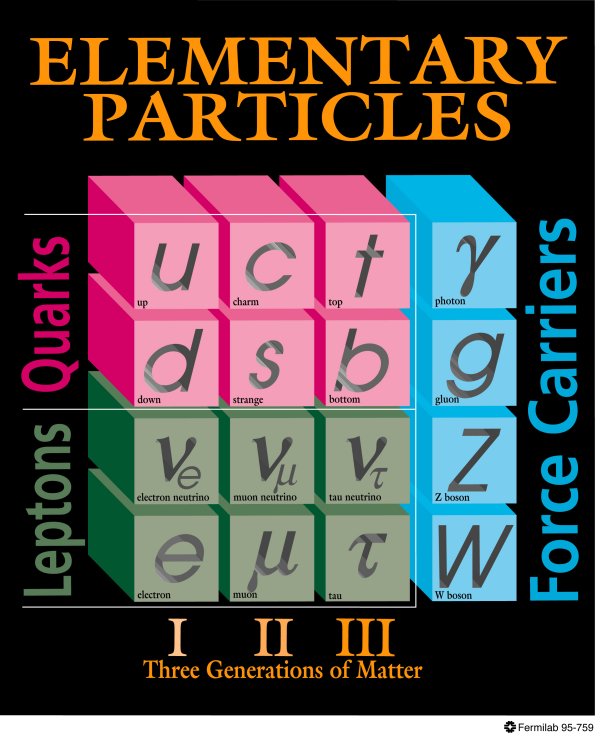|
As an experimental particle physicist,
I want to understand the basic building blocks that make up our universe and the physical laws
that govern how it behaves. It's incredible to me that by exploring subtle properties of fundamental matter in experiments here on Earth,
we can help piece together a detailed understanding of the history of our universe back to its very earliest moments 13.7 billion years ago.
We currently know of 12 fundamental matter particles (6 quarks and 6 leptons)
and 4 forces that act on them (electromagnetism, gravity, and the strong and weak nuclear forces).
The detailed properties that we have managed to measure in experiments and the precise
mathematical theory that describes the interactions between these particles are together known as the
Standard Model of Particle Physics.
My research focuses on better understanding the
neutrinos,
listed as νe, νμ, and ντ in the diagram to the right. Neutrinos are the most
abundant known matter particles in the universe, outnumbering protons, neutrons and electrons by a factor of a billion. They
only interact through the most feeble of the four forces, the weak nuclear force, making them a challenge to detect and study, but also making them
unique probes of new physics and potential messengers from across the cosmos.
For much more on my group's research, please see our site at voices.uchicago.edu/neutrino
|

|
Current research:
- One primary effort at the moment is on the Fermilab Short-Baseline Neutrino (SBN) program (website, proposal) including the Short-Baseline Near Detector (SBND), MicroBooNE, and the ICARUS detector as the SBN Far Detector.
- Our efforts in the SBN program are well aligned with our future goals of realizing the
DUNE long-baseline neutrino experiment
that seeks to determine, among other things, if neutrinos and antinuetrinos behave differently.
If they do, then neutrinos may help us understand why our universe if made up of matter and not antimatter,
a major unaswered question in fundamental physics today. DUNE will make the most precise measurements of neutrino and antineutrino oscillations in the world and explore
a variety of other beam and cosmic related neutrino physics as well.
|




